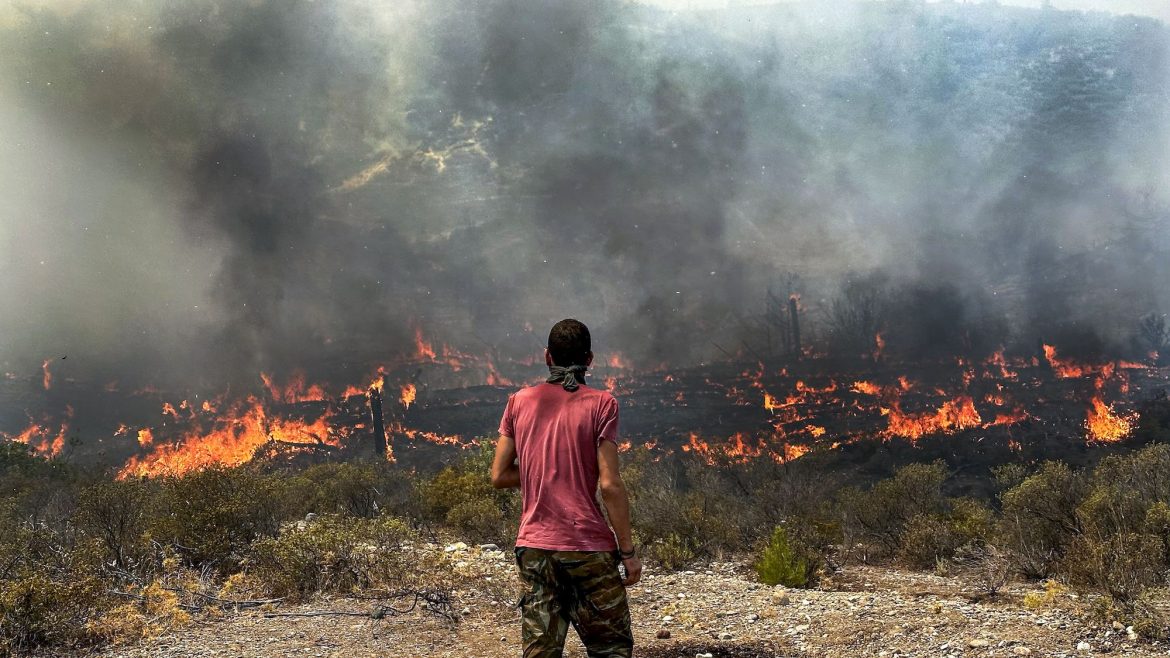A new study has shown that the damage caused by the climate crisis through extreme weather has cost $16m (£13m) an hour for the past 20 years.
According the World Meteorological Organization, there has been a sevenfold increase in reported losses from extreme weather disasters since the 1970s, However, separating the effect of global heating from population growth, urban migration and better reporting of disasters is difficult.
Published in the journal Nature Communications, the study took a different approach based on how climate change had exacerbated the extreme weather events. Hundreds of “attribution” studies have been done, calculating how much more frequent global heating made extreme weather events. This allows the fraction of the damages resulting from human-caused heating to be estimated.
To come up with their findings, the researchers applied these fractions to the damages recorded in the International Disaster Database, which compiles available data on all disasters in which 10 people died, or 100 were affected, or the country declared a state of emergency or requested international assistance.
The study, which is the first to calculate a global figure for the increased costs directly attributable to human-caused global heating, found that storms, floods, heatwaves and droughts have taken many lives and destroyed swathes of property in recent decades, with global heating making the events more frequent and intense.
It found average costs of $140bn (£115m) a year from 2000 to 2019, although the figure varies significantly from year to year. The latest data shows $280bn in costs in 2022. The researchers said lack of data, particularly in low-income countries, meant the figures were likely to be seriously underestimated. Additional climate costs, such as from crop yield declines and sea level rise, were also not included.
According to reports, the researchers produced the estimates by combining data on how much global heating worsened extreme weather events with economic data on losses. The study also found that the number of people affected by extreme weather because of the climate crisis was 1.2 billion over two decades.
Read also: Opec leaders: Oil, gas industry should not be stigmatised in climate change debate
Two-thirds of the damage costs were due to the lives lost, while a third was due to property and other assets being destroyed. Storms, such as Hurricane Harvey and Cyclone Nargis, were responsible for two-thirds of the climate costs, with 16% from heatwaves and 10% from floods and droughts.
The researchers said that their methods could be used to calculate how much funding was needed for a loss and damage fund established at the UN’s climate summit in 2022, which is intended to pay for the recovery from extreme weather disasters in poorer countries. It could also rapidly determine the specific climate cost of individual disasters, enabling faster delivery of funds.
In his reaction, Prof Ilan Noy, at the Victoria University of Wellington in New Zealand, who carried out the study with colleague Rebecca Newman, said that “the headline number is $140bn a year and, first of all, that’s already a big number,”.
“Second, when you compare it to the standard quantification of the cost of climate change [using computer models], it seems those quantifications are underestimating the impact of climate change,” Noy said, adding that there were a lot of extreme weather events for which there was no data on numbers of people killed or economic damage: “That indicates our headline number of $140bn is a significant understatement.” For example, he said, heatwave death data was only available in Europe. “We have no idea how many people died from heatwaves in all of sub-Saharan Africa.”
Story was adapted from the Guardian.
